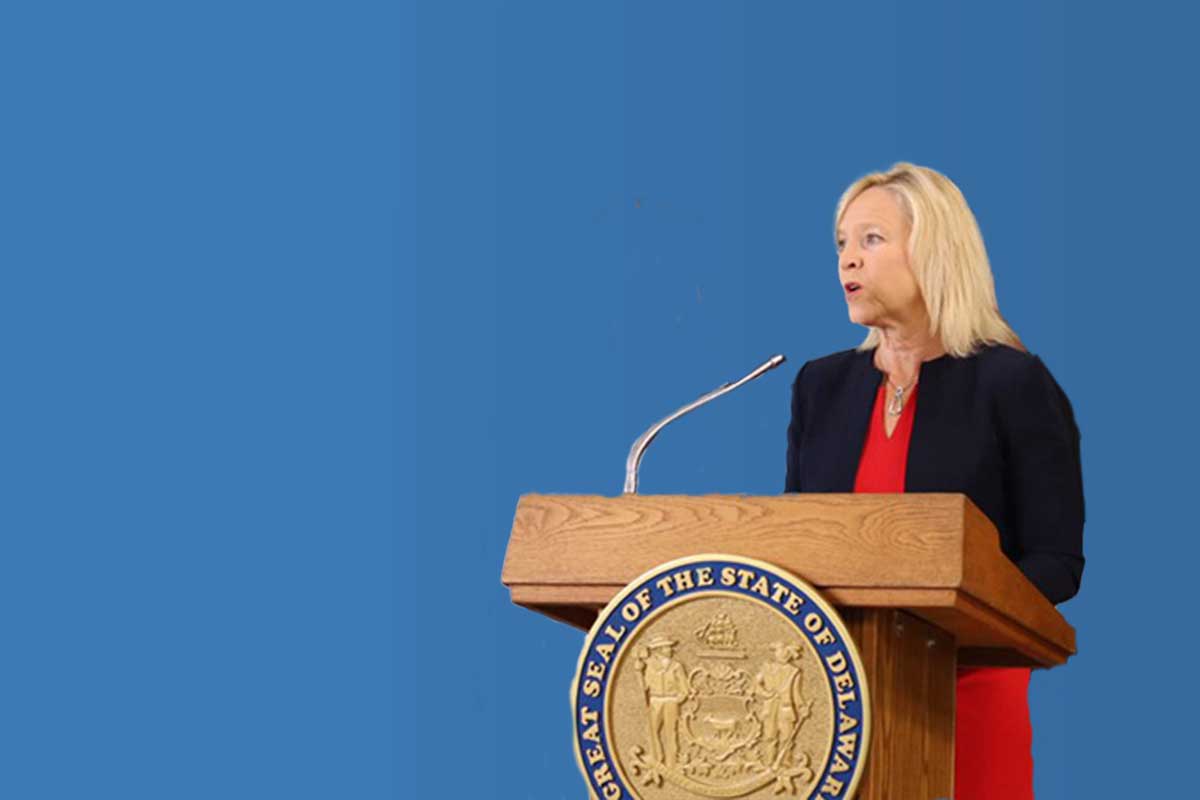OPINION
Lieutenant Governor Bethany Hall-Long Has Another Corruption Scandal in Her Run for Delaware Governor
Dear Friends,
Lieutenant governor Bethany Hall-Long has yet another corruption scandal. This time, the state Attorney General is calling her out on what’s happening with a $250 million opioid fund under her watch. Given all of Hall-Long’s troubles, it’s amazing to me that the Carney clown car hasn’t disowned her yet. But that will just make what this state really needs–Republican leadership–more possible in the general election. You do wonder why the Dems are clinging so desperately to this accused law breaker?? Hmmm…
Delaware is again the butt of jokes, as is the worst run governor campaign in the country. Please see the article below, and as always, your feedback is welcome and valued.
Respectfully Yours,
JUDSON Bennett–Coastal Network
AG office demands monitoring reports for $250M opioid fund
by Nick Stonesifer
August 28, 2024
The Delaware Attorney General’s office sent a letter late last week to the lieutenant governor’s staff demanding access to information about the state’s $250 million opioid relief fund.
The state’s chief prosecutor first sought access to monitoring information during a meeting more than nine months ago with the lieutenant governor, and has yet to receive those records for any awardees, according to a letter obtained by Spotlight Delaware.
The Prescription Opioid Settlement Distribution Commission, which is managed by the lieutenant governor’s office, oversees monitoring and applications for the state’s $250 million opioid settlement.
Delaware’s opioid relief fund is derived from hundreds of millions of dollars that the state secured in past years from legal settlements with prescription opioid producers, distributors and pharmacies.
Although Attorney General Kathy Jennings is a co-chair of the commission, she does not have access to monitoring information surrounding more than $13 million in grants awarded to Delaware addiction service organizations, according to the letter sent Friday by State Solicitor Patricia Davis, who heads the Delaware Department of Justice’s Civil Division.
Even after a meeting in July with Lt. Gov. Bethany Hall-Long, Delaware Prescription Opioid Settlement Distribution Commission Executive Director Susan Holloway and the chief deputy attorney general, Jennings has yet to get access to monitoring software used to track grant recipients.
“As co-chair of the POSDC, the Attorney General is entitled to access the books and records of the Commission,” Davis wrote.
According to a statement from its office, the DOJ has yet to receive that access for any of the grantees.
When asked if the DOJ would pursue any further actions if it did not get grant reports, the office said it’s “dealing with the facts as they stand at present [and] won’t speculate.”
A spokesperson for Hall-Long’s office shared a response letter from Holloway to Davis with Spotlight Delaware. The letter, dated Tuesday, said a request had been made in November for the DOJ to get access to the monitoring software, but that there was never any follow-up from the DOJ’s office.
“It is important to note that this discussion/request occurred almost a year ago and there has been absolutely no communication from you regarding not receiving access to Salesforce since that time,” Holloway wrote.
Holloway added that another request to get the DOJ a license to the software was made on Monday and is “in process.” When it comes to the July meeting, Holloway wrote that obtaining licenses for the software was “not addressed during [their] discussion.”
The lieutenant governor’s office and attorney general’s office have been sparring for months over the future of the opioid settlement funds and how they are managed. The two statewide leaders are co-chairs of the commission, but their arguments have spilled into the open at a time when Hall-Long is engaged in a competitive primary race for the Democratic gubernatorial nomination.
While Jennings is not running for office this year, she formerly served as chief administrative officer under New Castle County Executive Matt Meyer, the foremost opponent in Hall-Long’s campaign, drawing claims that the opioid fund fight has been politicized.
The management of Delaware’s opioid funds has been under scrutiny since late June, when Jennings released a letter calling for a freeze on future grants until further oversight could be provided on the program.
In the letter, Jennings warned the program was “rife with potential for fraud, waste, and abuse.” Another letter from State Auditor Lydia York said the office had “reason to believe” Code Purple Kent County, a Dover-based nonprofit, secured its funding using “fraudulent documentation.”
The state auditor’s office has since opened audits into 12 more recipients, although it has emphasized that those reviews are not predicated by suspicion of wrongdoing but instead are a snapshot review of the program’s oversight.
Meanwhile, an independent Wilmington consulting firm, Social Contract, has been hired by the POSDC to complete a report about the industry of addiction resource companies in Delaware to further guide future grant distribution.
Jennings’ letter was decried by members of the Behavioral Health Consortium and different addiction services nonprofits, with one nonprofit leader calling it a “witch hunt.”
The acrimony over the distribution of settlement funds comes at a time when the state can ill-afford to waste resources.
Delaware ranked fourth in the nation when it came to per-capita overdose deaths in 2022, according to the U.S. Centers for Disease Control and Prevention data.
The First State saw 527 overdose deaths in 2023, according to a report from the Delaware Division of Forensic Science – a small decrease from 2022’s 537 deaths. Overdose deaths dropped in both Sussex and New Castle counties, but Kent recorded a 33% increase.

